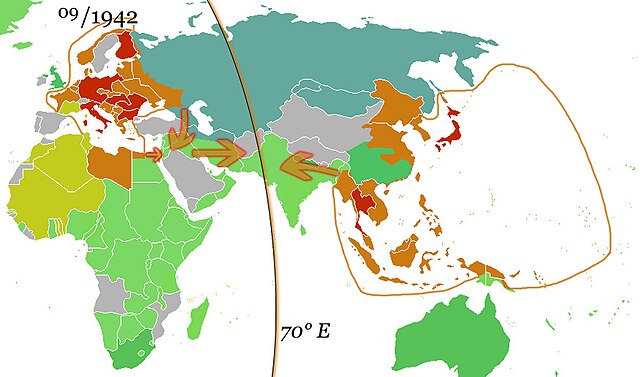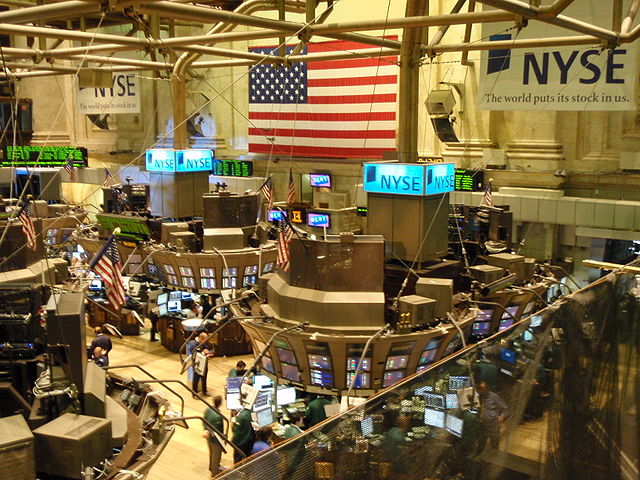In the field of international relations, a sphere of influence is a spatial region or concept division over which a state or organization has a level of cultural, economic, military, or political exclusivity.
A 1912 newspaper cartoon highlighting the United States' influence in Latin America following the Monroe Doctrine
Spheres of influence in Chinese empire in early 20th century
German and Japanese direct spheres of influence at their greatest extents in fall 1942
An 1878 British cartoon about The Great Game between the United Kingdom and Russia over influence in Central Asia
Superpower describes a state or supranational union that holds a dominant position characterized by the ability to exert influence or project power on a global scale. This is done through the combined means of economic, military, technological, political, and cultural strength as well as diplomatic and soft power influence. Traditionally, superpowers are preeminent among the great powers. While a great power state is capable of exerting its influence globally, superpowers are states so influential that no significant action can be taken by the global community without first considering the positions of the superpowers on the issue.
Prime Minister Winston Churchill, President Franklin D. Roosevelt, and General Secretary Joseph Stalin, meeting at the Yalta Conference in Crimea in February 1945, near the end of World War II
The New York Stock Exchange trading floor. Economic power such as a large nominal GDP and a world reserve currency are important factors in the projection of hard power.






